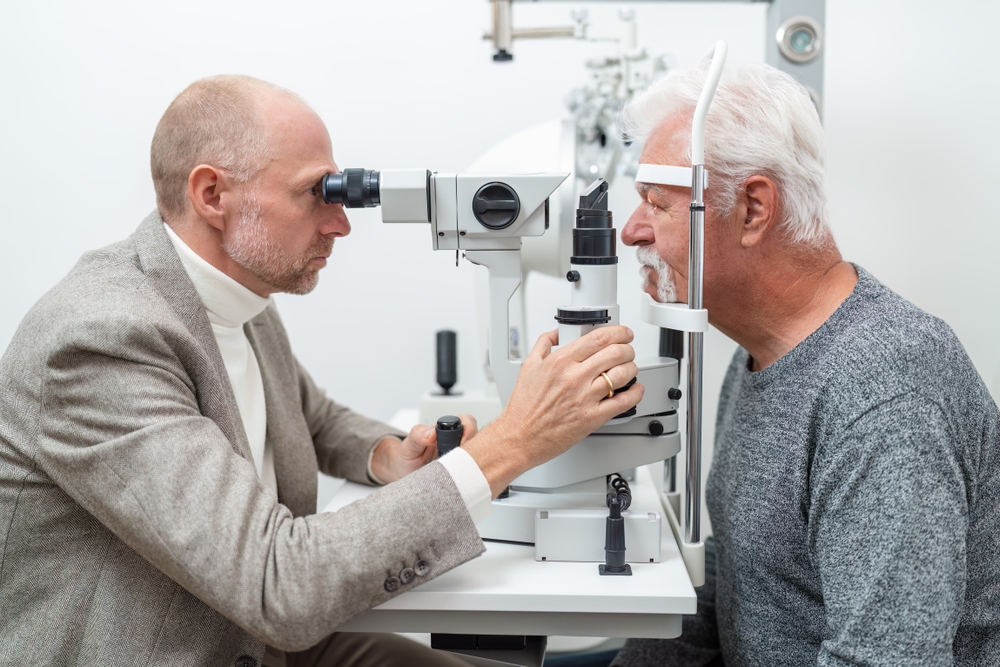How Do You Know if Changes to Your Vision are Due to Cataracts?
October 8, 2024
Do you have cataracts? They are far more common than you may think, as they are one of the most prevalent age-related eye conditions.
Most people are likely to develop them, with over half of all adults developing cataracts or needing cataract surgery by age 75. But while you may think of cataracts as only affecting those who are older, that's not entirely accurate.
Cataracts can often begin developing as early as your forties or fifties. However, at least initially, many patients don't realize they have cataracts.
The reason is that cataracts may not initially have any obvious symptoms. It can take years or even decades before cataracts get to the point that they negatively affect your vision or cause visual issues.
However, once they begin causing these issues, they can make it very difficult to see. How do you know if problems with your vision are due to cataracts?
The only way to know for sure is to see your eye doctor. However, there are certain signs you can look out for. Keep reading to learn how to know if changes to your vision are due to cataracts!
What are Cataracts?
 Although you may think you know what cataracts are, do you really know what they are? A cataract forms on your eye's natural lens, making it become cloudy and more opaque.
Although you may think you know what cataracts are, do you really know what they are? A cataract forms on your eye's natural lens, making it become cloudy and more opaque.
Your natural lens is supposed to be clear so you can see through it. Think of your lens as a window and a cataract as fog on the window.
The foggier the window becomes, the harder it is to see through. Seeing clearly becomes a struggle as everything may feel like looking through a haze or mist.
When you have a cataract, your natural lens becomes more cloudy over time. It can take many years before a cataract is advanced enough to severely affect your vision.
However, once you reach this point, even the most simple everyday tasks and activities can become much more challenging, like driving at night, reading, or knitting a blanket for your new grandchild. Cataracts lead to vision loss and tend to take your autonomy and independence with them as well.
What are the Symptoms of Having a Cataract?
There are many symptoms associated with having cataracts, which can include:
- Blurry vision
- Poor night vision
- Halos and glare
- Light sensitivity
- Difficulty seeing color contrast
- Seeing double in one eye (monocular double vision)
- Muddy vision
- Colors losing their vibrance
These symptoms usually develop slowly, meaning you may not experience them even if you've had cataracts for many years. This can make it harder to recognize when you do develop symptoms.
Part of what makes cataract symptoms so confusing is that most patients with cataracts also have some degree of presbyopia. Knowing the difference between cataract symptoms and presbyopia symptoms can help determine if your vision problems are due to cataracts.
Could you have cataracts?
Cataracts vs. Presbyopia
Presbyopia is an age-related eye condition that occurs when your eye's natural lens becomes less flexible, making it harder to focus up close. Most adults experience presbyopia starting in their forties or fifties.
Most people with cataracts also have presbyopia, so it can be hard to tell if your vision loss is due to presbyopia or cataracts. One fundamental way to differentiate between cataracts and presbyopia is what your most considerable difficulty is when you're trying to read or complete other fine-focus tasks.
Presbyopia makes it harder to see up close, but cataracts may make it harder to see up close due to poor night vision. Since cataracts affect your night vision and presbyopia doesn't, it's a distinction you may be able to make.
If more lighting helps you see, including more than using reading glasses, then your main visual problem could be cataracts. But, again, the only way to know if your cataracts are making it hard to see is to see your optometrist or ophthalmologist at Washington Eye Specialists.
Have Your Eyes Examined
 You should schedule eye exams regularly with your ophthalmologist or optometrist at Washington Eye Specialists after you turn 40. Scheduling eye exams more regularly after turning 40 will ensure that cataracts and any other age-related eye condition you may develop are diagnosed early.
You should schedule eye exams regularly with your ophthalmologist or optometrist at Washington Eye Specialists after you turn 40. Scheduling eye exams more regularly after turning 40 will ensure that cataracts and any other age-related eye condition you may develop are diagnosed early.
An early cataract diagnosis can be helpful because your optometrist or ophthalmologist can monitor their development. They can take years to develop, so you and your eyecare provider can work together to track when you start experiencing symptoms.
Your optometrist or ophthalmologist at Washington Eye Specialists will be able to help you know when your vision problems are due to your cataracts based on how cloudy your lens has become. Perhaps most importantly, they can help you determine when it's time to have your cataracts treated.
What Do You Do When Your Cataracts Become Advanced?
If you have cataracts and are experiencing vision loss, the good news is you can regain your vision by having cataract surgery. However, cataract surgeons only recommend the procedure once your cataracts begin to affect your quality of life.
To figure out when that point is, you need to know when your vision problems are due to cataracts. Recognizing the symptoms and talking to your ophthalmologist or optometrist at Washington Eye Specialists are the best ways to do this.
However, there are also some signs that it may be time to consider cataract surgery. If you find it very difficult and even dangerous to drive after dark or you've been injured because of your poor vision, these are signs that you should consider the procedure.
There's no need to wait until cataracts significantly affect your ability to see. If you're struggling to see due to cataracts, it's time to talk to your ophthalmologist or optometrist about cataract surgery.
Could it be time for cataract surgery? Learn more by scheduling a cataract evaluation at Washington Eye Specialists in Washington, DC, now! Haven't you waited long enough for clearer vision without cataracts?



